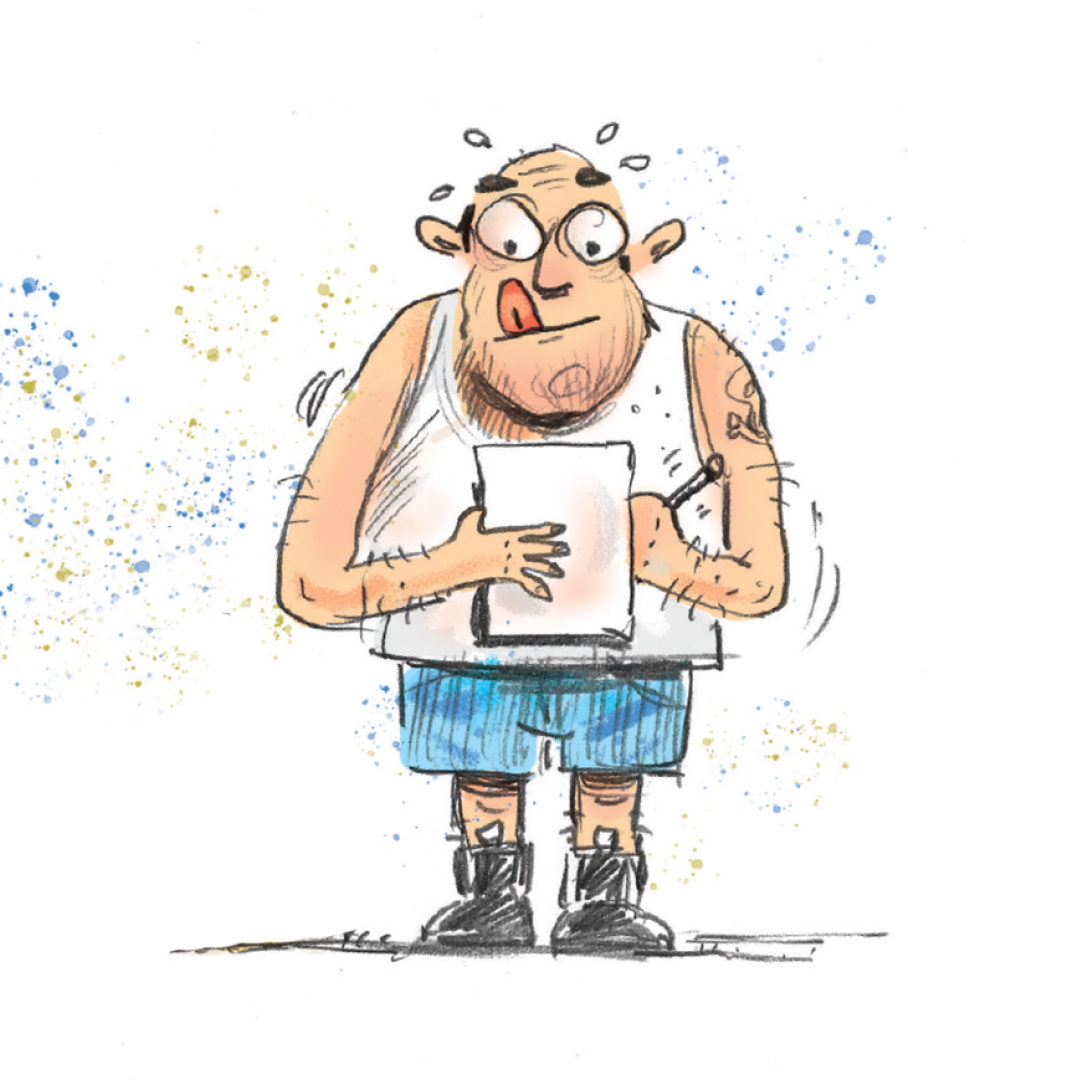The power of the pre-mortem: “Am I Okay?”
In the midst of our busy lives we all too often neglect the importance of checking in on those around us in order to ask a simple question with important and far-reaching consequences: “Are you okay?”
I think there is a more important question: “Am I Ok?” It is critically important that you take control of and responsibility for your own mental health. One of my favourite and most frequently used metaphors is that of driving to a destination versus being driven there as a passenger. With your hands on the wheel, you will remember how you got there. If you are a passenger, you may still get lost even after making the same journey many times.
Post-mortem versus Pre-Mortem.
You are more than likely quite familiar with the term post-mortem (the examination of a deceased person by an Anatomical or Forensic Pathologist to ascertain the cause of death). As a professional practitioner devoted to improving a lot of the living, you will hardly be surprised to learn that I regard that as being too little too late! I much prefer the idea and practice of what I like to call a pre-mortem. Simply put: A pre-mortem can do much to postpone your post-mortem.
And that is where the simple question, “Am I Okay?” will take you.
However, be warned; a thorough pre-mortem can be quite painful. Even though they are simple, the questions can be challenging. Taking action to change toxic behaviour is even harder. Some of the questions are obviously relevant to physical health and others to your state of mental well-being. Here is an example of some of the questions you should ask yourself:
- Did I take a shower today?
Personal hygiene is crucial to mental and physical wellness. Washing your body is a great way to rinse out your head. - Have I eaten anything healthy in the past few hours?
Fresh fruit or vegetables in particular. - Have I had any water to drink in the past hour?
Adequate hydration is vital to your health on a multiplicity of levels. - Did I get enough sleep last night?
A well-rested body and mind improves health dramatically. Stick to a schedule and get the rest you need. - Have I been for a walk in the past 24 hours?
Walking outdoors for at least 20 minutes will boost your energy. - Is it daytime? Did I make my bed? Am I dressed?
The time-honoured Latin phrase carpe diem (seize the day) has echoed down the centuries for good reason. You’ll be happier and more productive if you get ready every day. No matter how hard it seems, grab the day by the horns! - Is it nighttime? Am I struggling to fall asleep?
Put away your phone, close your eyes, be still, and count your breaths. Like all things, healthy restful sleep comes with practice. - Have there been any changes to medication I might be taking?
If you are more irritable or anxious than usual it might be because you’re on a new medication (or alternatively it may be a sign that you need medication). As always it is best to consult your doctor. - Do I feel unattractive?
Before you negatively judge your looks, get cleaned up and dressed. Make an effort. Put your best foot forward. Taking care of yourself will boost your self-esteem. - Did I do something fun today?
Read, exercise, listen to music, dance. Whatever your notion of fun is, find time to do it. - Have I hugged someone recently?
Physical contact is critically important to a healthy body and mind. Hug your family, friends, or pets every chance you get. - Have I given someone a compliment in the past 24 hours?
Helping boost others self-esteem increases your own. It’s that simple. - Have I shared how I am feeling today?
Talking about your feelings, regardless of whether they are positive or negative, gives you a sense of control. It is a powerful antidote to the feelings of powerlessness that often feed depression. - Am I focused on the future or dwelling the past?
Focus on the future because you can influence, change and shape it. The past is an abstraction of the mind that you cannot change! - Do I have something to look forward to?
Having something to look forward to makes our problems seem much smaller. - Do I feel unproductive?
Start with a single, simple task: Make your bed. Do the laundry. Wash the dishes. You’ll be amazed at how much of a sense of control the little things can give you. - Have I had to make a big decision lately?
Your body and mind react naturally to change. Practice self-awareness and cut yourself some slack when you are facing tumultuous change. - Have I exhausted myself lately?
This can be physically, socially, emotionally, or intellectually. Like batteries, your mind and body need time to recharge. - How long has it been since I felt bad about myself?
Be self-aware. Tell that cruel relentless unremitting inner critic to shut up. - Have you talked to a counsellor?
Talking to a professional is not a weakness. It is common sense. Take time to find a counsellor who suits you and reach out to them in times of need.
As human beings, we thrive on connection and social interaction. By asking someone if they are okay, we convey our genuine interest and concern for their well-being. This simple act opens the door for honest and open communication, allowing individuals to share their struggles, fears, and challenges. By actively listening and providing support, we strengthen our relationships and build a sense of trust and understanding with others. When we take the time to ask “Are you okay?” we demonstrate that we are willing to be there for one another, fostering a sense of community and compassion.
The Three-legged Stool of Happiness:
Someone to love. Something to do. Something to look forward to.
I am a great advocate of keeping things simple. I believe that the metaphorical stool of happiness has three legs:
- Someone to love.
- Something to do.
- Something to look forward to
Ask yourself about these three things often. With these factors in mind, having asked yourself, “Am I Okay?” and having conducted your own pre-mortem, you will be in a far better position to ask others if they’re okay and to be genuinely helpful. Furthermore, you will be in a far better position to help them, not only to understand the complexities of their own unique circumstances but also what actions they can take to aid their pursuit of happiness and mental wellbeing. If you have read this far, I am willing to bet my metaphorically bottom dollar that you will increasingly find yourself able to answer to the question, “Am I ok?” in the positive.



